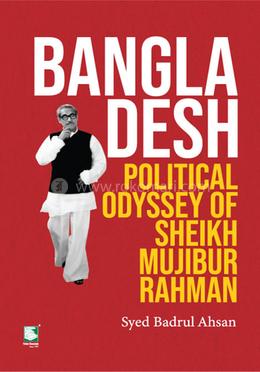Welcome to Rokomari.com!

Ends in
00 : Days
00 : Hrs
00 : Min
00 Sec

Ends in
প্রিয় ,
সেদিন আপনার কার্টে কিছু বই রেখে কোথায় যেন চলে গিয়েছিলেন।
মিলিয়ে দেখুন তো বইগুলো ঠিক আছে কিনা?
18


চলবে ২১ ডিসেম্বর পর্যন্ত
00 : 00 : 00 : 00
.svg) In Stock (only 1 copy left)
In Stock (only 1 copy left) চলছে বর্ষসেরা অফার ক্লিয়ারেন্স সেল! থাকছে বইয়ে ৭০% ও পণ্যে ৭৮% পর্যন্ত ছাড়!




Save TK. 321
| Title | Bangladesh Political Odyssey of Sheikh Mujibur Rahman |
| Author | Syed Badrul Ahsan |
| Publisher | Pathak Shamabesh |
| ISBN | 9789849761655 |
| Edition | 1st Edition, 2023 |
| Number of Pages | 140 |
| Country | Bangladesh |
| Language | English |
Have a question regarding the product? Ask Us
Please login to write question Login


Cash on delivery
Pay cash at your doorstep
Delivery
All over Bangladesh

Happy return
7 days return facility
0 Item(s)
Subtotal:
Are you sure to remove this from bookshelf?
demo content



















